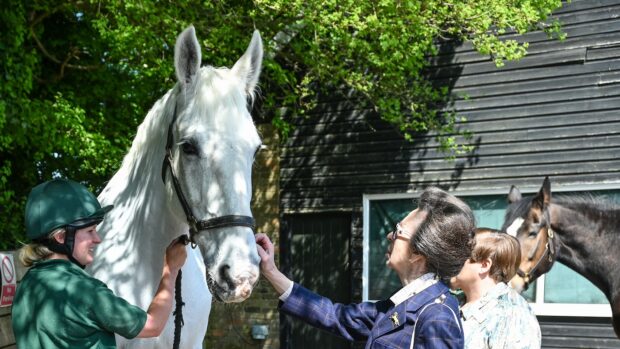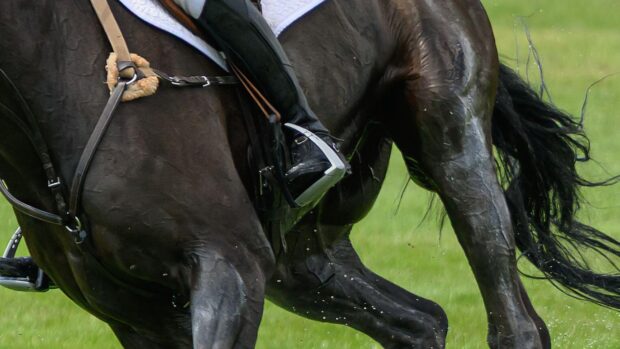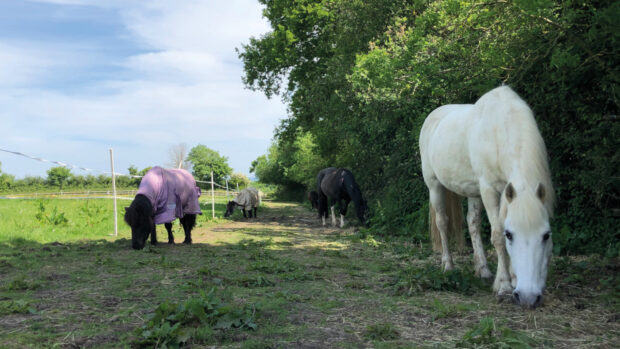The owner of a mare who came within “hours of death” as a result of her obesity is urging others to take action to tackle excess equine weight.
Andrea Hetherington’s 17-year-old cob Ocko developed laminitis early last year and was close to being put down, owing to the severity of her pain.
But Ocko’s vet Joe Mackinder, of Rainbow Equine Hospital, Yorkshire, having diagnosed equine metabolic syndrome, devised a low-sugar diet plan to help her lose weight safely.
He also prescribed medication to hasten the weight loss and benefit her laminitis.
“Through the remainder of the winter Ocko was clipped and only had a lightweight rug so she could lose weight during the colder weather as horses are supposed to,” Mr Mackinder said.
“The owners were very diligent with following advice and sticking to the diet plan. By August, Ocko was back in normal work and had lost a lot of weight. She was sound, had a lot more energy and was performing better.”
Andrea urged other owners to listen to their vets and adhere to their instructions.
“It’s not an overnight recovery, it takes time and patience,” she said.
“The changes made for Ocko are for life to ensure she stays as sound as possible. We now take pride in the fact we can see her ribs.
“We never realised how overweight she was and when we were warned she was gaining weight, we made excuses.
“As a result we came within hours of losing her. We would never have forgiven ourselves.”

Lucy Grieve, chairman of the British Equine Veterinary Association (BEVA) ethics and welfare committee, said there appears to be a stigma attached to having a leaner horse on many yards, when “in fact, such a horse is highly likely to be healthier than its overweight neighbour”.
“I can’t emphasise enough that prevention is better than cure,” she added.
“Avoiding weight gain is notoriously easier than trying to effect weight loss, so spotting that your horse is starting to put on weight is critical. Vets and owners need to work together as a team and monitor horses routinely.
Continues below…

‘They’re getting fatter and fatter’: Vet’s warning over obesity-related equine deaths
‘As a rule, you’ll get much more criticism on a livery yard if you can see ribs than if your

Vets’ top tips for vital winter weight loss
Top vets have shared advice on how to get horses and ponies in suitable condition before the spring

Subscribe to Horse & Hound magazine today – and enjoy unlimited website access all year round
“Taking steps to support weight control now and establish a healthy weight for your horse or pony is important to reduce the increased risks come the spring.”
BEVA is developing information and tools to help vets work with owners as a team to tackle equine obesity.
For all the latest news analysis, competition reports, interviews, features and much more, don’t miss Horse & Hound magazine, on sale every Thursday.




